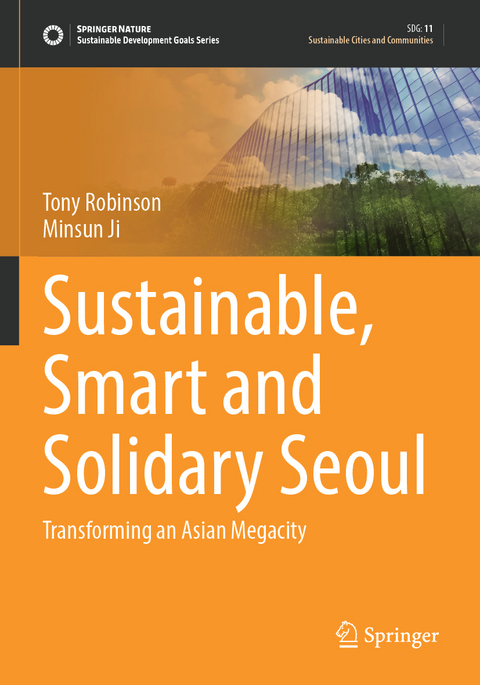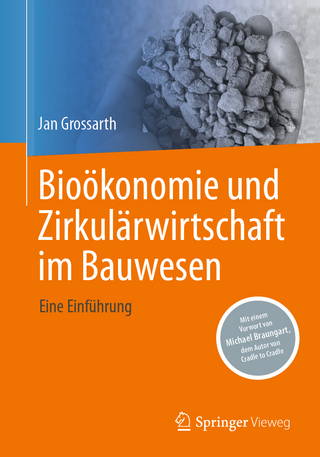
Sustainable, Smart and Solidary Seoul
Springer International Publishing (Verlag)
978-3-031-13597-2 (ISBN)
This book showcases how innovative state policy in Korea transformed Seoul from one of the world's most impoverished, polluted, and congested cities into a global leader in green urban planning, smart city innovations, and social economy initiatives that have dramatically improved the local quality of life. Today, Seoul's urban planning innovations are increasingly touted as replicable best practices for export to cities across the globe.
This book describes how innovative state policy has made Seoul a world leader in sustainable, smart, and solidary urban initiatives. Beginning in the 1960s, Seoul led the fastest urbanization and modernization project in world history, becoming a colossal 26-million-person metropolitan region and one of the largest footprints of humanity on earth, transforming the nation from one of the world's poorest to having the 10th largest GDP in 2020.
Today, Seoul has become one of the most productive and innovative urban agglomerations onearth. Seoul's residents enjoy the world's highest penetration of high-speed internet, a model mass transit system, and advanced smart-city technologies. The vast city has become increasingly green and sustainable, while also recycling about 90% of all waste. Seoul has become a leader in social economy innovations like cooperative villages, mutual benefit societies, and social investment funds that advance equitable development goals amid a booming capitalist economy.
To broaden our imagination of what good urbanism can achieve, this book reviews Seoul's recent innovations in smart, sustainable, and solidary urbanism, including: green urban planning, sustainable development through recycling and reuse, well-managed mass transit, smart city design, and solidarity economy initiatives.
lt;p>Tony Robinson is Associate Professor of Political Science at the CU Denver Department of Political Science, Denver, Colorado, USA. His Korean urban studies research draws on more than a decade leading month-long university urban planning study-abroad trips across Korea. Dr. Robinson has delivered a series of academic presentations on Korean history, culture and political-economy in both the United States and Korea, including public lectures arranged in collaboration with the Korean Ambassador to the United States. Dr. Robinson has been tapped by the U.S. National Consortium for Teaching on Asia to produce educational videos on modern Korean history for distribution to teachers across the United States
Dr. Minsun Ji is a Korean scholar with expertise in Korean labor and social economy issues. She has been tapped by multiple Korean civil society and governmental organizations in recent years to deliver talks and consultant reports on the status of the social economy sector in Korea. She has been invited to deliver presentations and consultant reports to the Special Social Economy Committee of the South Korean government, including presentations to the Ministry of Labor and the Ministry of Planning and Finance. She is currently the executive director of the Rocky Mountain Employee Ownership Center and Director of Global Partnerships for the Drivers Cooperative (New York).
Introduction.- Towards Zero Waste and the Circular Economy: Green Governance Remakes Seoul.- From Cheonggyecheon to Seoullo 7017: The Greening of Seoul.- Twenty-One Million Trips a Day: Seoul's Mass Transit Revolution.- A City of Sensors: Solving the Urban Puzzle.
| Erscheinungsdatum | 05.10.2023 |
|---|---|
| Reihe/Serie | Sustainable Development Goals Series |
| Zusatzinfo | XVIII, 175 p. 26 illus., 22 illus. in color. |
| Verlagsort | Cham |
| Sprache | englisch |
| Maße | 178 x 254 mm |
| Gewicht | 483 g |
| Themenwelt | Naturwissenschaften ► Biologie ► Ökologie / Naturschutz |
| Naturwissenschaften ► Geowissenschaften ► Geografie / Kartografie | |
| Schlagworte | Green Governance in Seoul • Green planning, clear water and urban forests • Green urbanism • Korea • Megacity • Recycling • SDG Sustainable Development Goals • Seoul • Seoul's Mass Transit • Seoul’s Mass Transit • Seoul's smart city design • smart cities • Smart, sustainable, and solidary urbanism • Social Economy • solidarity economy • Urban forests • urban planning • Zero Waste and Circular Economy |
| ISBN-10 | 3-031-13597-0 / 3031135970 |
| ISBN-13 | 978-3-031-13597-2 / 9783031135972 |
| Zustand | Neuware |
| Haben Sie eine Frage zum Produkt? |
aus dem Bereich


